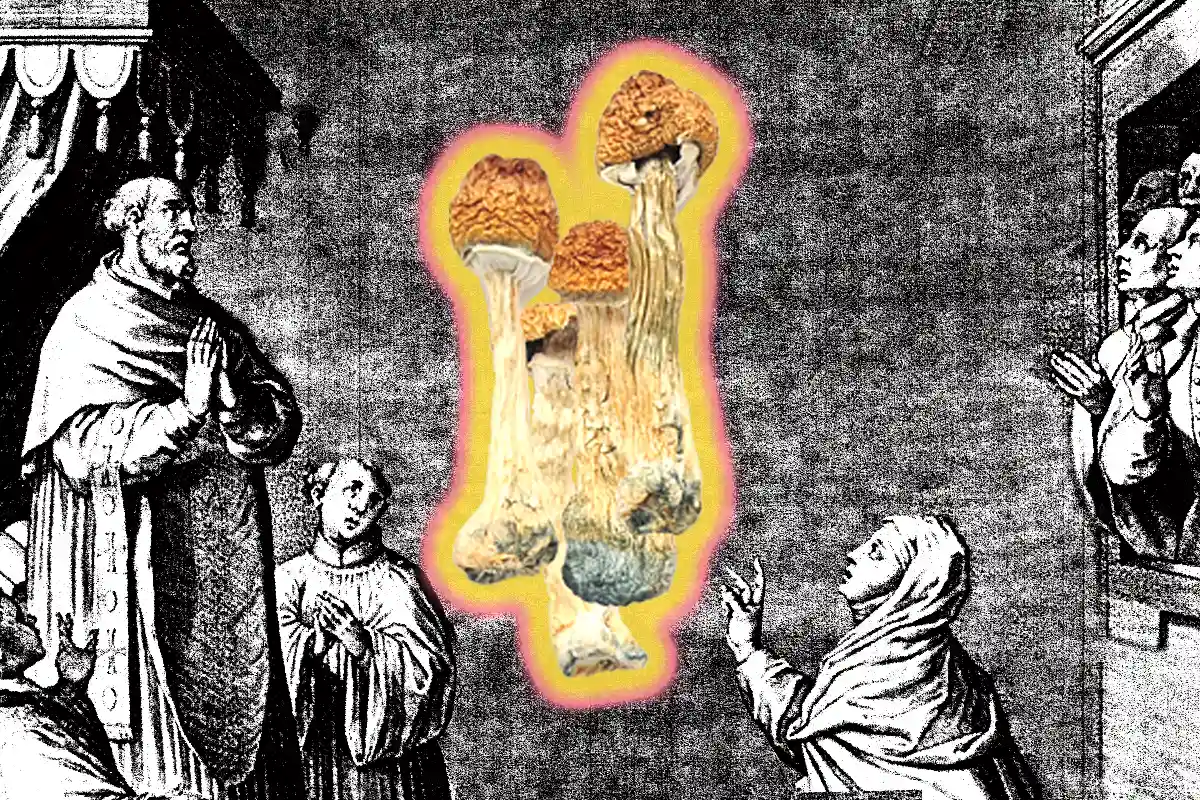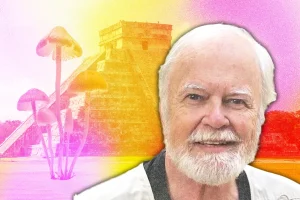There is a common phase that occurs early in someone’s relationship with psychedelic exploration. I call it “psychedelic evangelism.” During this time, an individual, having had a profound or transformative experience, attributes the new insights and positive shifts in their life to the use of the substance. It’s natural to conclude that if only everyone could take this substance or have this experience, they too could be healed, awakened, or transformed.
Engaging with an inexperienced community from this place of enthusiasm comes with risks. Because there is still a lack of unbiased information and public education around psychedelics, newcomers who hold little experience may be rapidly propped up as relative experts within their friend circles, workplaces, or communities. If this happens in tandem with an evangelism phase, what results can be an oversight of risks, amplification of benefits, or reckless promotion of unsupported use that leads to people getting hurt.
A great deal of understanding comes from years of practice. It also comes from involvement within communities that have gleaned wisdom from direct experience and the collective sharing of core knowledge. As such, it’s natural that folks just starting out might not be totally aware of things like drug interactions, best practices around set, setting, dose, and the psychological, physiological, or spiritual risks for certain groups—among other important factors to consider.
READ: Why Humans Believe in God
Additionally, there is a growing risk that substances sold as psychedelics can be adulterated or entirely different substances than what they were sold as. For this reason, it is best practice to always test your substances, even if you trust the source and even if you are consuming in a casual social environment. The risks of adverse events, overdoses, and even death continue to increase, and testing is a simple practice that can be life-saving. There are kits readily available online via groups such as DanceSafe and Test Your Poison. As people who use substances or love people who do, we can do our part by normalizing drug-checking and urging event organizers to make these services a mainstay at their events.
Reaping benefits from a relationship with plant medicines and psychedelics requires more than access to substances. It’s important to remember what we discussed in chapter 1, on Inner-Work: that our experiences of the world are not universal. There are many factors that contribute to having a positive experience with psychedelics, and just because you did, does not mean that your mother, neighbor, partner, or coworker will. Further, psychedelics don’t automatically create prosocial changes in people. Consider the rise of New Age conspirituality (the melding of spirituality and conspiracy theories) and its connections with white supremacy, xenophobia, ableism, transphobia, and fascist ideology. This is not an issue that exists far away from this field; there is significant overlap and use of psychedelics and plant medicines in these subcultures, and harmful beliefs can proliferate with the suggestibility of altered states. That is to say, mass consumption is probably not the solution some imagine it to be.
So You Think You’re A Shaman
There is another common phenomenon that occurs early in someone’s journey with expanded states. That is the sense of calling. For many people, early journeys are marked as pivotal moments that shift the trajectory of their entire lives. This can be a positive thing when grounded in community and accountability. Many of the early insights and breakthroughs we have will be built upon over the coming years, through integration and the sacred practices that lie within ordinary life. With time, maturity, and context, the teachings of these substances weave their way organically into our paths and life decisions.
How to Grow Shrooms Bundle
Take Both of Our Courses and Save $90!
In other cases, a profound experience can also sometimes result in an inflation of one’s ego and the sense of being “called” by the medicine. It’s not an uncommon story, or a new one: a mentor with forty-plus years of experience in this culture explained to me that this is a long-standing pattern that precedes the current enthusiasm for psychedelics. Often, people will return from ceremonies abroad (sometimes facilitated by traditional medicine carriers and sometimes by Western-owned retreat centers) stating that they are selling their belongings, moving to another country, and pursuing the shamanic path. A sense of being unique and special, or the grand feeling of having received deep cosmic insights can be intoxicating. Opportunistic groups might even encourage these beliefs if there is something to be gained through your pursuit of a medicine path (such as retreats, collaborations, training courses, and so on). Remember that it can be very difficult to distinguish between our own inner narrator and the voice of the medicines. There is no real way to be sure, but time can be illuminating. Slowing down and practicing discernment are needed.
Because there is so much money to be made in this field, there is an increasingly varied ecosystem of psychedelic startups and service providers to choose from. With the added pressure of investment capital in certain business models, there is potential for conflict in priorities that, if not addressed, risk prioritization of scale and profit over quality of care. Find organizations and individuals aligned with your values, with a proven track record or vetted by people you trust—above- or underground.
Another question to consider is: Why the urgency? If you are new to the work and feel called to serve medicine or be in a leadership role in any context, explore the possibility of giving yourself a year, or better yet, a few years, to be in a beginner’s role and spend time under trusted mentorship. Working with medicine is a path of service, and it requires humility. It is better to do so while in the role of a student than in the role of a leader. Again, consider the “shadow why.” Often, we’ll find in ourselves a mix of sincere good intentions and less altruistic motives, such as an impulse toward self-advancement, a desire for notoriety, a craving to break free from the status quo and live an alternative lifestyle, or a hunger for purpose or meaning.
READ: MDMA Test Kit: Why Drug Checking is Essential for Molly
If the medicine is calling, there is truly no rush. There are time-honored reasons that traditional communities require many years of apprenticeship and humble service before serving medicine. There are ways to sustainably weave medicine work into your life without abandoning your current one.
Ultimately, radical shifts in one’s life path are decisions each person must make on their own. However, the dynamics of power, privilege, entitlement, economics, colonialism, and maturity can all show up in the pursuit of serving medicine or working in this field. These all intersect when people—especially Westerners—become self-proclaimed healers or leap into leadership or business roles without honoring the customary rites of passage associated with such responsibilities. While these rites may be less obvious in grassroots medicine communities or legal psychedelic contexts, we know that healthy groups throughout society have clearly defined protocols and support the transfer of knowledge between generations. This is also true of psychedelic communities. In my experience, belonging within the broader psychedelic community is often connected with showing up with humility and consistency. We have the best outcomes when we put in the time, build and tend sincere, reciprocal relationships, and wait for our community to delegate us to roles of leadership.
There is room for a wide range of people in the psychedelic field, and I believe there is a general sense of openness to widening the circle. However, there are key principles and values that risk being lost or diluted when a cascade of folks move too rapidly from a learner’s role into a leadership role. There is a great deal of history, nuance, and wisdom held in the existing communities of practice. To be a reliable representative of this field to the public, online, in the press, or in communities you are a part of, it’s important to put in the time listening, learning, sitting quietly, and being of service. This not only reduces harm; it also builds trust among the existing network of incredible lineage keepers, guides, researchers, and policymakers who have dedicated many years to the work and taken great risks that benefit us today.
Benefits of Developing Discernment
Finding a setting, facilitator, and context that is right for you can result in more transformative experiences. Every community and clinic has its own culture, ethos, and approach to the work. The experience you have will be informed by the person or group you choose to work with, and your level of comfort and rapport with them. Below are a few noteworthy benefits of making discernment part of your psychedelic path.
Connection with Inner Healer
When we move fast or ride on the confidence of others, it can be hard to connect with our own sacred knowledge. The path to finding a facilitator to work with can be medicinal in itself. It asks you to spend time reflecting, listening, and getting in touch with your own boundaries, needs, and desires. By increasing connection with your intuition, you strengthen the ability to hear and advocate for your deeper needs.
Reduced Risk
There are known facilitators and communities of practice who have a reputation for questionable ethics, patterns of harm, or lack of accountability. It can be hard for newcomers to recognize this, as many individuals and groups have adopted similar language. This makes it difficult to get a sense of someone’s practices, approach, and the quality of care they bring to the work.
This is compounded by the fact that, in the United States and other places around the world, psychedelic facilitators and communities of practice exist in the shadows, making it difficult to know one group from another until you have spent time with them. Before working with anyone, take time to vet your practitioner, ask questions, and meet others in the community who know them. The Women’s Visionary Congress published a list of twenty safety tips in 2014 that provides practical advice on minimizing risks when navigating ceremonial contexts at home and abroad.
From Whole Medicine by Rebecca Martinez, published by North Atlantic Books, copyright ©
2024 by Rebecca Martinez. Reprinted by permission of North Atlantic Books.

DoubleBlind is a trusted resource for news, evidence-based education, and reporting on psychedelics. We work with leading medical professionals, scientific researchers, journalists, mycologists, indigenous stewards, and cultural pioneers. Read about our editorial policy and fact-checking process here.

DoubleBlind Magazine does not encourage or condone any illegal activities, including but not limited to the use of illegal substances. We do not provide mental health, clinical, or medical services. We are not a substitute for medical, psychological, or psychiatric diagnosis, treatment, or advice. If you are in a crisis or if you or any other person may be in danger or experiencing a mental health emergency, immediately call 911 or your local emergency resources. If you are considering suicide, please call 988 to connect with the National Suicide Prevention Lifeline.



